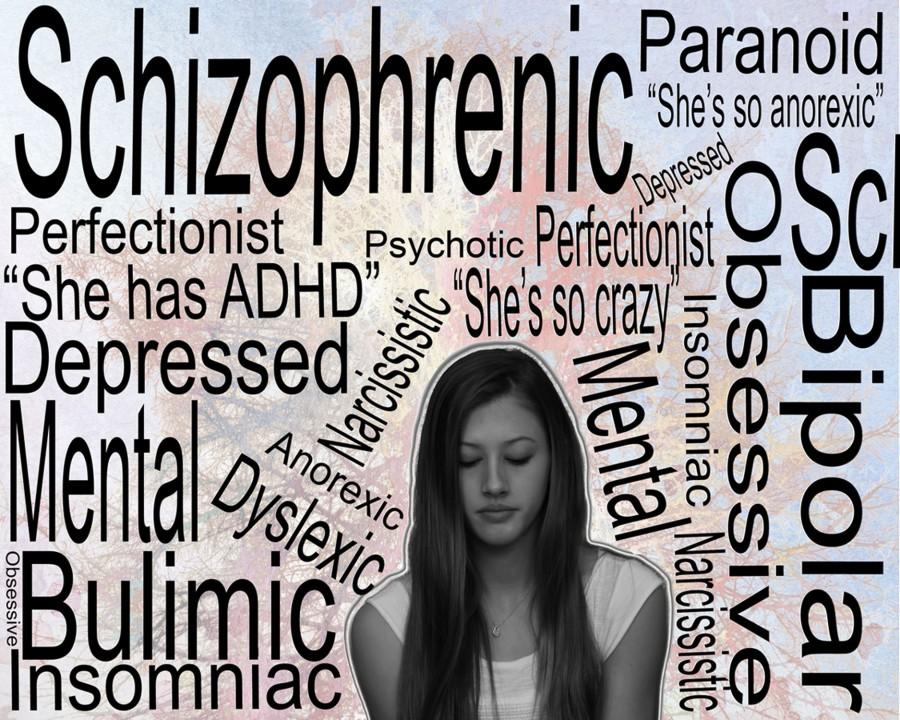Mental illnesses don’t belong in the label maker
Photo created by Jeweliana Hendrickson, featuring sophomore Rachel Scowron.
February 27, 2015
How many times this winter have you heard someone cough and then hear another say, “You have Ebola!”
Mental illnesses have become a common misconception in the same way the sickness Ebola has. The term ‘mental illness’ has become a slang term. According to the Mayo Clinic, mental illnesses are “disorders that affect your mood, thinking and behavior,” Nowadays, the term is used to label people carelessly whether someone has an illness or not. This is no different from bullying and it needs to stop.
Sophomore Bree Cacioppo said, “You hear people around school using mental illnesses to describe how other people act.”
Today, many adolescents use the common criticisms, “You’re so bipolar,” or “I’ve been so depressed these past few days,”and “She never eats lunch, she’s so anorexic.” These real life illnesses affect the ability to function properly on a daily basis and are NOT terms that should be used to label someone when they’re in a bad mood.
Mental illnesses are not a phase and should not be used to carelessly describe a person. Sadness is a temporary feeling that everyone can and will feel during life; whereas, depression is a mental illness that seriously affects a person’s life to where he/she cannot physically and mentally function properly. There’s a difference between not being hungry/skipping a meal and being anorexic. Mislabeling dulls the seriousness of a mental illness, which is very real, especially in a high school setting.
Where did this mislabeling come from? One culprit is social media. Social media plays a key role spreading misinformation among adolescents. The main sites are Tumblr, Twitter, and Instagram. On these sites there are blogs/posts called thinspiration aka thinspo. These blogs includes images and posts showing girls who are underdeveloped and experiencing malnutrition. At this age, adolescents are easily influenced, and, therefore, could aspire to look like these people and or think they have a new knowledge in this aspect causing them to believe they know what is wrong with that girl at lunch who isn’t eating.
This labeling is body shaming others and can lead to deadly results. In July 2011 a 14-yr old hanged herself due to the harassment from other teens in school. These kids were calling her “bulimic,” which she wasn’t at the time, but it led her to become bulimic.
People do not understand the effects of mislabeling. Before calling someone or yourself “anorexic,” “bipolar,” “depressed,” “ADHD,” or any other illness, have a background of what that illness actually is and never use it as an adjective to carelessly put down yourself or someone else.






